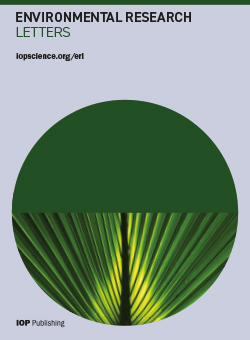Change in the sustainability of regional agricultural systems: based on an emergy decomposition analysis
IF 5.6
2区 环境科学与生态学
Q1 ENVIRONMENTAL SCIENCES
引用次数: 0
Abstract
In the context of rapid population growth and limited arable land resources, the agricultural system has to provide enough food in a sustainable way. Regional agricultural systems have good consistency in agricultural practices, management decisions, social economy, and climate, which is of great significance in ensuring food security. In this study, emergy analysis and the logarithmic mean divisia index method were integrated to construct an evaluation framework from the dimensions of socio-economic environment, resource environment, climate environment, and ecological environment. Then we evaluated and analyzed the changes in agricultural system sustainability from 1990 to 2019 in the mainstream of Liaohe River Basin, a typical agricultural basin in China. The results showed that the Emergy sustainability index (ESI) decreased from 0.17 to 0.14, and factors Δ Pt/Gt (social and economic development level), Δ G/I (agricultural economic benefits), and Δ Gt/G (economic structure) from the socio-economic environment dimension had the greatest impact on changes in ESI. Moreover, society and economy affected the factors in the resource environmental dimensions through the allocation of policies and resources, which in turn directly affected ESI. The influence of factors from the climatic environment and ecological environment weakens as the ability to manage agricultural systems increases. The research provided a reference for the planning and management of sustaining agricultural systems at a regional scale.地区农业系统可持续性的变化:基于应急分解分析
在人口快速增长、耕地资源有限的情况下,农业系统必须以可持续的方式提供足够的粮食。区域农业系统在农业实践、管理决策、社会经济和气候等方面具有良好的一致性,这对确保粮食安全具有重要意义。本研究综合运用突发事件分析法和对数平均除法指数法,从社会经济环境、资源环境、气候环境和生态环境等维度构建评价框架。然后评价分析了中国典型农业流域辽河流域1990-2019年主流农业系统可持续性的变化。结果表明,农业系统可持续性指数(ESI)从0.17下降到0.14,社会经济环境因素ΔPt/Gt(社会经济发展水平)、ΔG/I(农业经济效益)和ΔGt/G(经济结构)对农业系统可持续性指数的影响最大。此外,社会和经济通过政策和资源分配对资源环境维度的因素产生影响,进而直接影响 ESI。随着农业系统管理能力的提高,气候环境和生态环境因素的影响逐渐减弱。这项研究为在区域范围内规划和管理可持续农业系统提供了参考。
本文章由计算机程序翻译,如有差异,请以英文原文为准。
求助全文
约1分钟内获得全文
求助全文
来源期刊

Environmental Research Letters
环境科学-环境科学
CiteScore
11.90
自引率
4.50%
发文量
763
审稿时长
4.3 months
期刊介绍:
Environmental Research Letters (ERL) is a high-impact, open-access journal intended to be the meeting place of the research and policy communities concerned with environmental change and management.
The journal''s coverage reflects the increasingly interdisciplinary nature of environmental science, recognizing the wide-ranging contributions to the development of methods, tools and evaluation strategies relevant to the field. Submissions from across all components of the Earth system, i.e. land, atmosphere, cryosphere, biosphere and hydrosphere, and exchanges between these components are welcome.
 求助内容:
求助内容: 应助结果提醒方式:
应助结果提醒方式:


